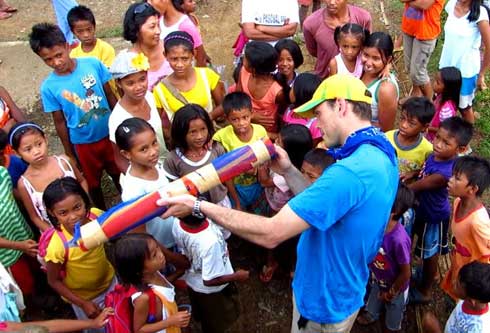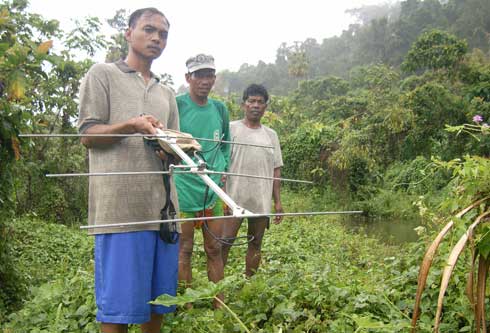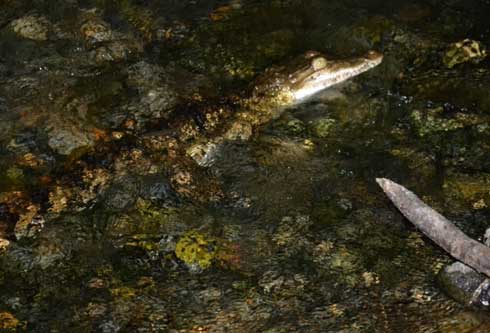 |
|
Johan showing local school children a PVC pipe with a captive-raised juvenile Philippine crocodile in it. The pipes are a safe way to transport the juvenile crocodiles. Photo credit: Joni Acay. |
Johan Van Der Ploeg is an SCB member and works for WorldFish in the Solomon Islands. Johan previously worked for the Mabuwaya Foundation, an NGO specializing in the conservation of the critically endangered Philippine crocodile.
1. What’s the biggest environmental challenge in the Solomon Islands?
Eighty percent of people in the Solomon Islands are directly dependent on fish for nutrition and income. Fisheries are under severe pressure from overfishing and destructive land use practices, such as commercial logging. Most of the coral reefs, lagoons, mangroves and forests are under some form of customary ownership, but these traditional tenure systems are changing as a result of market demands, modernization, migration and population growth. Enabling rural communities to manage their resources in a sustainable way is a major challenge.
 |
|
Telemetry in the Philippines. Photo credit: Johan Van Der Ploeg. |
2. What role does social science play in addressing this challenge?
Conservation is about people. Problems are caused by people. And solutions start with people.
 |
|
Juvenile Philippine crocodile. Photo credit: Johan Van Der Ploeg. |
3. You’ve worked across cultures and political boundaries. At the most basic level, how do you connect with people so that your message can be felt and internalized?
Over the past fourteen years I have tried to mobilize local support for the conservation of the critically endangered Philippine crocodile in the northern Sierra Madre on Luzon, one of the poorest areas of the Philippines. Most people living in these remote areas earn less than $1 US dollar a day. It is often said that the conservation of a potentially dangerous animal is not a priority in such a setting. I tend to disagree. Not because crocodiles are an economic asset that can alleviate rural poverty (they are not). But because most people in the northern Sierra Madre are interested, like you and me, in such a large animal; they are excited when they see it in the wild; and they consider the disappearance of the iconic species a loss. Conservation is not about money; we sometimes forget that in all the talk about ecosystem services. Ultimately conservation is about interest, joy, passion and love – also for poor communities in the tropics.